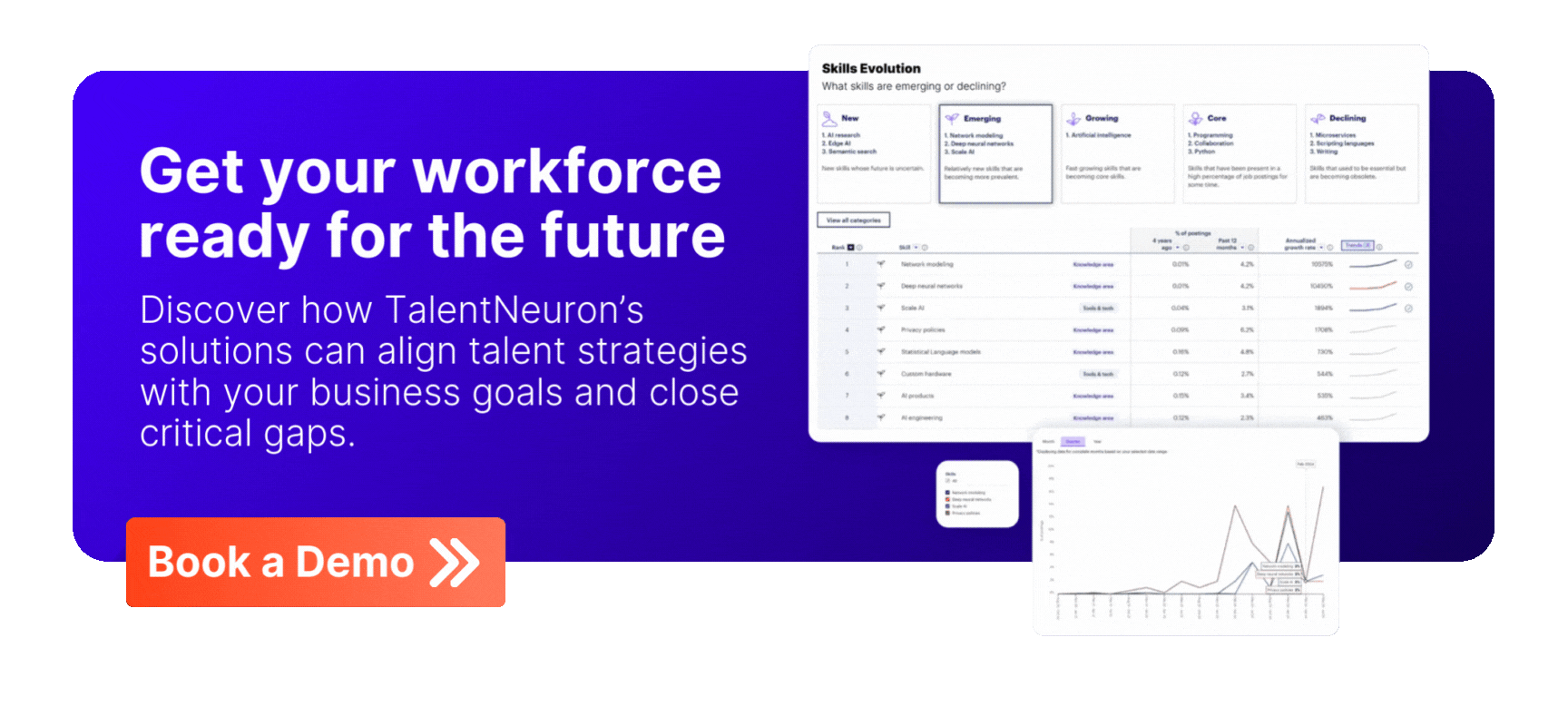How Generation Z is Reshaping the Future Workforce
.svg)
How Generation Z is Reshaping the Future Workforce
Explore the challenges, expectations, and strategies for successfully integrating Gen Z into the workplace

Generation Z, born roughly between 1997 and 2012, is rapidly becoming a dominant force that's expected to make up 27% of the workforce in OECD countries by the end of 2025. This demographic, accounting for more than two billion people worldwide, brings distinct values and expectations that are already reshaping workplace dynamics. But businesses that aim to attract and retain this tech-savvy and purpose-driven generation should do their homework.
Recent reports indicate a disconnect across the multigenerational workforce. Some employers even express dissatisfaction with Gen Z hires, citing concerns about preparedness, work ethic, and adaptability — even leading some to reconsider future graduate hiring. This begs the question: Is this a generational misunderstanding, or does the modern workplace necessitate a fundamental shift?
Nearly six in 10 (57%) of U.S. hiring organizations told a December 2023 survey that recent college graduates lacked professionalism required for work, and almost four in 10 (38%) avoid hiring recent Gen Z college graduates in favor of older workers because of these gaps.
Deloitte Insight's 2025 Global Human Capital Trends report

Understanding the Gen Z Talent Landscape
Often described as individualistic, socially aware, creative, stressed, diverse, and authentic, Gen Z prioritizes social activism and stability. Research highlights their value for training and leadership programs, genuine human connection, and an authentic company culture where they feel invested in and where their development is a priority.

Growing up in an "always-on" digital world, Gen Z expects seamless technology. Slow or outdated systems aren't just inconvenient; they can be dealbreakers. Their expectation is clear: Workplace tools must be fast, intuitive, personalized, and mobile-friendly.
While older generations may have focused on climbing the corporate ladder and prioritizing job security, Gen Z seeks balance, purpose, and personal fulfillment. They are drawn to organizations that champion social causes, cultivate authentic cultures, and provide opportunities for growth — investing in their holistic development, not just technical skills.
Diversity, equity, and inclusion (DEI) are not just buzzwords for Gen Z — they are fundamental pillars of their desired workplace culture. They actively seek employers who demonstrate a genuine commitment to fairness and inclusivity.
Employer Concerns vs. Gen Z Perspectives
Reports highlight employer concerns regarding Gen Z's high expectations for purpose, need for structure, communication challenges, difficulty with feedback, and adjustment to workplace norms. However, viewing these concerns through the lens of Gen Z's upbringing offers valuable insight.
Prominent youth researcher Klaus Hurrelmann notes that Gen Z was raised with values of participation and independence, fostering expectations of equal treatment, positive reinforcement, and security. They value involvement in decision-making and reject environments lacking appreciation. Effective engagement strategies include respecting work-life boundaries, providing regular constructive feedback, supporting independence through trust, setting realistic expectations, actively involving them in decisions, and fostering direct, equal communication.
While new graduates may possess theoretical knowledge, they are still building practical experience. The reality is that a significant percentage of recent graduates find themselves underemployed, working in roles that don't require their degrees. Gen Z wants to work, but they seek meaningful roles that align with their values. Purpose is a significant driver of their job satisfaction, and they are increasingly likely to decline roles or employers that don't resonate with their beliefs. Furthermore, they often express dissatisfaction with traditional, non-empathetic management styles, preferring leaders who foster development and inclusivity.
86% of Gen Z respondents said having a sense of purpose in their work is somewhat/very important for their job satisfaction and well-being. Half of Gen Z respondents also said they have rejected an assignment or project based on their personal ethics/beliefs, and 44% have passed on potential employers for the same reason.
Deloitte Global 2024 Gen Z and Millennial Survey
It's also crucial to remember that navigating the initial stages of a career involves making mistakes and developing an understanding of one's role. This is a universal experience, perhaps amplified for Gen Z entering a rapidly evolving world where the shelf life of skills is shrinking. The increasing rate of skill change underscores the need for continuous learning and for educational institutions to adapt their curricula.

What Gen Z Talent Truly Seeks in Their Careers
Despite the "quiet quitting" narrative, 36% of Gen Z workers see work as a central part of their identities, according to Deloitte's Global 2024 Gen Z and Millennial Survey, although they also highly prioritize cultural activities. Flexible work arrangements, including remote options and flexible leave, are also top priorities.
The traditional "career ladder" is becoming obsolete for Gen Z workers, who favor a more adaptable and flexible approach to career growth, emphasizing empowerment and autonomy in deciding where and when they work. They seek continuous skill development and lifelong learning. And while they might switch jobs more frequently, this can be partly attributed to a sense of financial insecurity and a lack of feeling adequately recognized and rewarded in their current roles.
Practical Strategies to Bridge the Generational Divide
To build lasting professional relationships with Gen Z employees, employers must adapt hiring and retention strategies to meet the needs of this purpose-driven generation. Here are six ways to get started.
- Recruit where they are: Leverage social media platforms — primarily TikTok, Instagram, and YouTube — where a significant majority of Gen Z actively engage.
- Optimize digital engagement: Ensure seamless, fast, and mobile-friendly technology in the workplace. Evaluate and upgrade legacy systems that may hinder productivity.
- Simplify the application process: Prioritize mobile-friendly applications requiring minimal effort. Provide timely feedback to candidates, ideally within a week.
- Cultivate purpose and authenticity: Clearly communicate your company's commitment to social causes and foster an authentic culture. Integrate DEI initiatives into your brand and practices.
- Streamline hiring: Utilize recruiting analytics to identify and address inconsistencies in the hiring process, ensuring a smooth and mobile-friendly experience.
- Prioritize career development and feedback: Implement structured, constructive feedback loops and provide ample opportunities for growth and skill development.
Embracing the Future Generations of Work
Generation Z is not just entering the workforce — it's reshaping it with its unique perspectives, technological fluency, and strong sense of purpose. While perceived challenges might exist, understanding and aligning with their values presents significant opportunities. By prioritizing a culture that fosters engagement, growth, and authenticity, companies can not only attract and retain Gen Z talent but also build a more dynamic and future-ready workforce for generations to come.





